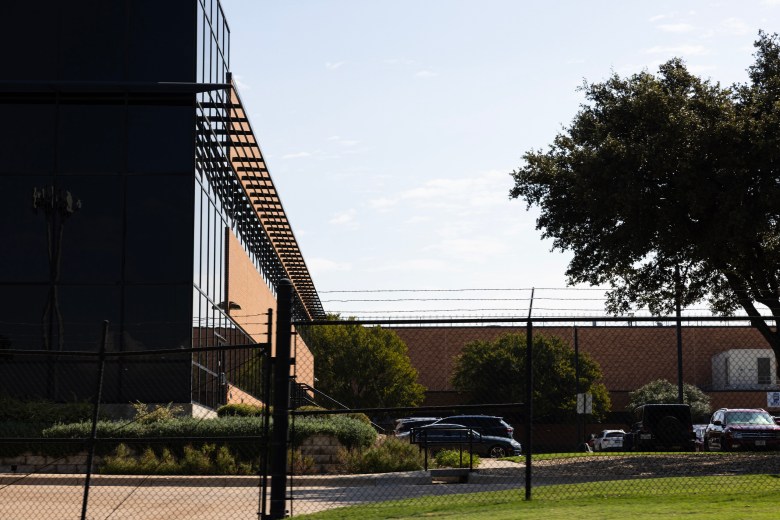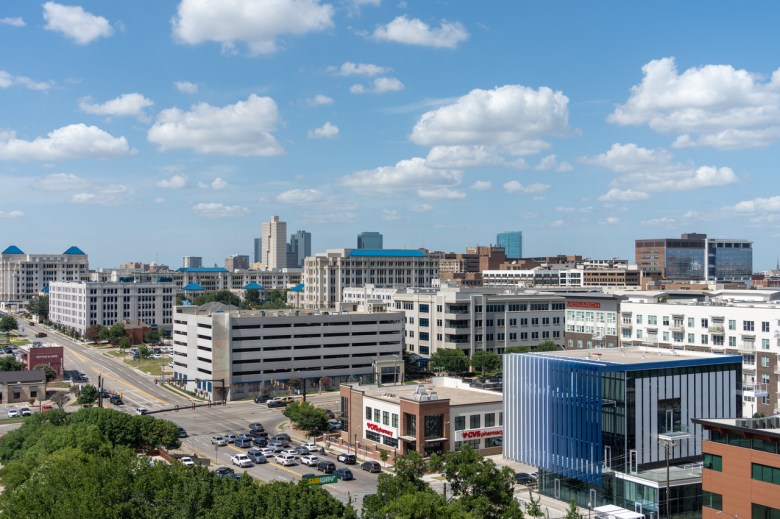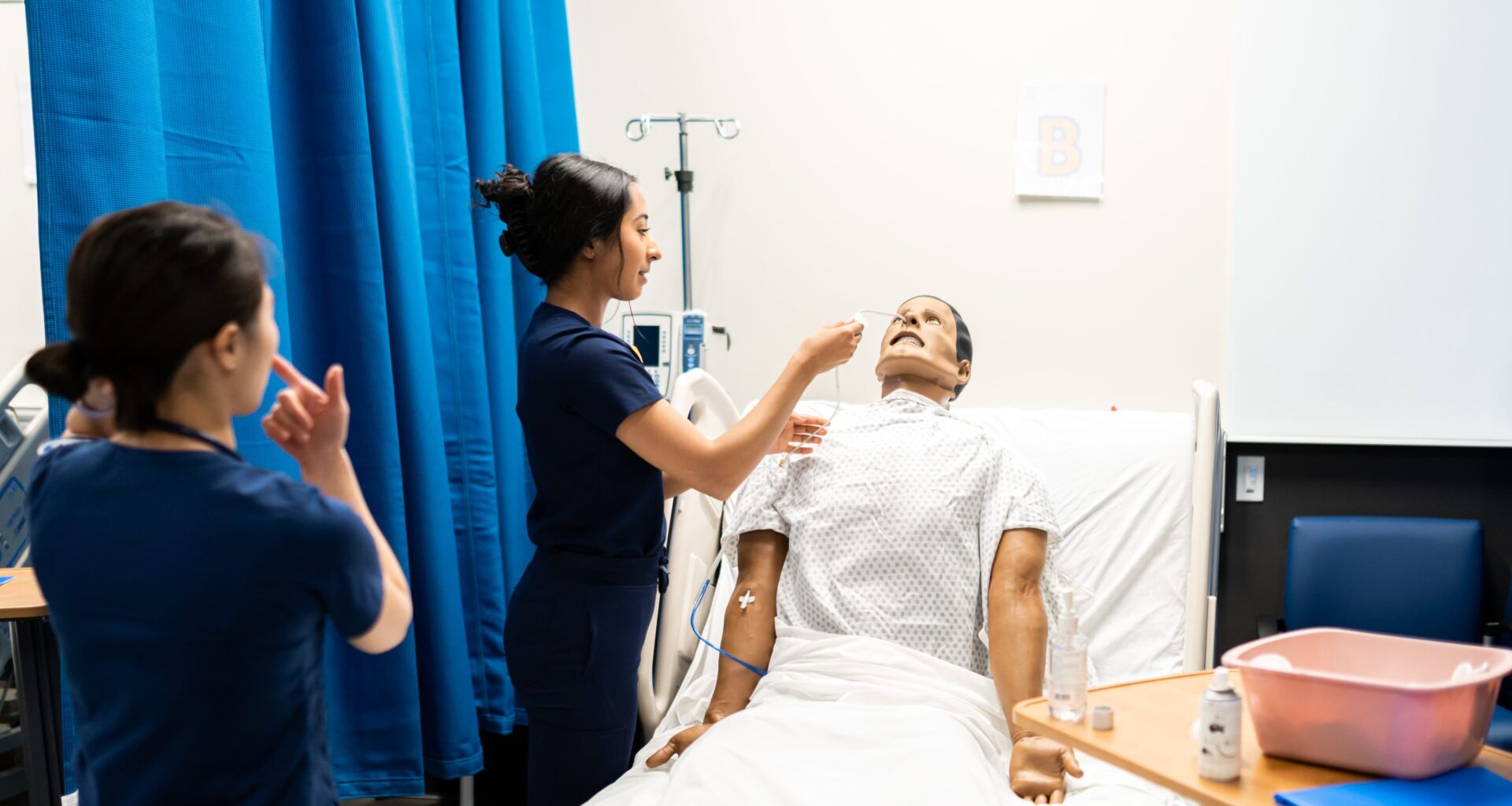In the 1990s, the city of Fort Worth was looking to diversify the local economy, which at that point was mainly centered around the defense industry.
“They hired an outside firm to do a big study to ask, ‘If we had an incubator, what should it focus on?’” said Darlene Boudreaux, a former executive director of TechFW and chief financial officer of Cx Precision Medicine. “And the outside group decided that it should be … medical innovation.”
The city decided to follow that advice. Local leaders created TechFW in 1998, which initially looked to become an incubator for medical technology before broadening their mission.
Higher education followed suit. UNT Health Fort Worth, founded in 1970, continued to grow, adding departments and resources like the Center for Biohealth in 2004 and the first immersive virtual reality simulation center in the state in 2022. Texas Christian University opened a medical school last year and has already begun region-wide initiatives. University of Texas at Arlington opened a state-of-the-art smart hospital in 2023, housing robots that simulate medical emergencies and a virtual reality lab.
Local industry leaders continue to discuss how Tarrant County can continue this momentum and foster an ecosystem to continue leading the country in medical innovation.
On Dec. 2, the Fort Worth Report is bringing that discussion to the public through its final Candid Conversation event of the calendar year. The panel will feature innovators from universities, the private sector and the county’s hospital, bringing them together to speak about the future of Fort Worth as a medical innovation hub.
Join us for our latest Candid Conversation
The topic is building a major medical innovation hub.
Panelists:
- Kirk Calhoun, M.D., FACP, president, UNT Health Fort Worth.
- Tricia C. Elliott, M.D., FAAFP, senior vice president of academic and research affairs, JPS Health Network.
- Elyse Stolz Dickerson, CEO and co-founder, Eosera.
- Stuart D. Flynn, M.D., founding dean, Anne Burnett Marion School of Medicine at TCU.
The panel will be moderated by Ismael M. Belkoura, health reporter for the Fort Worth Report.
When: Complimentary breakfast begins at 7:30 a.m. Dec. 2. The discussion begins at 8 a.m. Tickets are available by clicking here.
Where: Tarrant County College Trinity River Campus Action Suite. Complimentary parking is available at the garage on Cherry Street and Belknap Street.
 From left to right: Dr. Kirk Calhoun, Dr. Tricia C. Elliott, Elyse Stolz Dickerson and Dr. Stuart D. Flynn will be the panelists at the Fort Worth Report’s Candid Conversation event on Dec. 2. (Photo collage created by Maria Crane | Fort Worth Report/CatchLight Local/Report for America)
From left to right: Dr. Kirk Calhoun, Dr. Tricia C. Elliott, Elyse Stolz Dickerson and Dr. Stuart D. Flynn will be the panelists at the Fort Worth Report’s Candid Conversation event on Dec. 2. (Photo collage created by Maria Crane | Fort Worth Report/CatchLight Local/Report for America)
A storied, innovated beginning
Medical innovation in Tarrant County was not born when TechFW was founded in 1998.
In May 1947, Alcon Laboratories Inc. was founded as a small pharmacy in Fort Worth and began manufacturing specialty pharmaceutical products. Now, the company is a global leader in eye products, with their annual revenue this year reaching $10.185 billion.
In a statement to the Fort Worth Report, Alcon chief operating officer Ian Bell said the city “has certainly nurtured Alcon since our founding.”
“Today, Alcon is proud to be part of an exciting expansion of Fort Worth’s healthcare ecosystem
as it sets the pace for medical innovation,” Bell said.
In the early days of the company, no other local business came close to matching the company’s growth, said Thomas O. McDonald, a longtime Alcon employee and the author of “Alcon Laboratories — A Vision Fulfilled, 1947-1997.”
“Alcon was the pioneer innovator in the medical pharmaceutical industry in Tarrant County,” McDonald said. “I don’t know of any other company that was started shortly after the Second (World) War that became as successful and dominant in its industry as Alcon did.”
Decades later, companies began to branch off from Alcon as its brain trust would leave to create new businesses. McDonald referenced DFB Pharmaceuticals, which was founded in 1990 by John Feik, a former Alcon employee, and Paul Dorman.
 Various buildings make up the Alcon compound at 6201 S. Freeway in Fort Worth on Sept. 30, 2025. (Maria Crane | Fort Worth Report/CatchLight Local/Report for America)
Various buildings make up the Alcon compound at 6201 S. Freeway in Fort Worth on Sept. 30, 2025. (Maria Crane | Fort Worth Report/CatchLight Local/Report for America)
“There were other companies that came along later, and some of these actually came into existence because of Alcon,” McDonald said.
Building a long-term base
The turn of the century was an important inflection point for Fort Worth medical innovation.
Although companies in the industry had begun to call Cowtown home, local leadership started to provide support for new businesses to sprout, Boudreaux said.
“While we certainly had medical innovation — Alcon started here, that generated a whole lot of employment in the area for a long time — but we weren’t having lots of new companies start up,” Boudreaux said. “There wasn’t the infrastructure to help them start.”
That support came with money. In 2005, the city and UNT Health teamed up to help inject TechFW with money alongside state funding. The nonprofit has supported over 200 businesses since its inception in 1998.
The region has recently received attention for the medical innovation work being done. North Texas was awarded in 2023 the federal designation of Customer Experience Hub for the Advanced Research Projects Agency for Health.
Although no company since has been as monetarily prosperous as Alcon, the city boasts several successful medical startups. In 2020, Exact Diagnostics was purchased for $60 million. ZS Pharma was bought in 2015 for $2.7 billion.
Tarrant County companies being bought or moving from the region is not necessarily a bad thing, Boudreaux said.
“The question is what happens with that money. The people here in town who started those companies, they’re Fort Worth people. They don’t go buy a yacht — they invest in more companies,” Boudreaux said.
Additional investment has come in the hospital district. The city designated the region in Near Southside as a Medical Innovation District in 2023. That formal designation allows the region to attract more businesses and research.
 Fort Worth’s Medical Innovation District, located just west of Interstate 35W in the Near Southside, is home to the city’s major hospitals, independent health clinics and medical education institutions. (Courtesy photo | Austin James, Near Southside Inc.)
Fort Worth’s Medical Innovation District, located just west of Interstate 35W in the Near Southside, is home to the city’s major hospitals, independent health clinics and medical education institutions. (Courtesy photo | Austin James, Near Southside Inc.)
In the few years since the creation of the Medical Innovation District, TCU opened its medical school and Texas A&M University announced the planned creation of a biomedical repository just north of the district. Alcon also announced the opening of a new research center in the district last year.
Research and investment will contribute to “substantial economic impact over the next decade” for the region, said Dr. Dimitrios Karamichos, vice president of research and graduate studies at UNT Health.
“Investments in medical innovation, university research, biotech and healthcare expansions not only improve access to high-quality care but also create thousands of jobs and attract additional biotech and medical companies,” Karamichos said.
From Boudreaux’s perspective, investment into medical innovation should not and probably will not stop.
“It’s a competitive world out there. If you stop, you lose,” she added.
Ismael M. Belkoura is the health reporter for the Fort Worth Report. Contact him at ismael.belkoura@fortworthreport.org.
At the Fort Worth Report, news decisions are made independently of our board members and financial supporters. Read more about our editorial independence policy here.
Related
Fort Worth Report is certified by the Journalism Trust Initiative for adhering to standards for ethical journalism.
Republish This Story
Republishing is free for noncommercial entities. Commercial entities are prohibited without a licensing agreement. Contact us for details.
